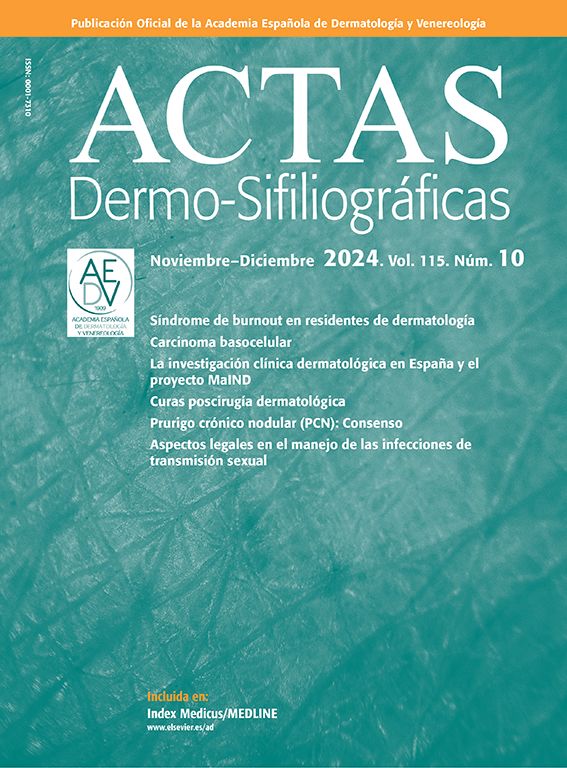The findings reported by Magdaleno-Tapial and coworkers1 oblige us to reflect upon the current approach to the management of urethritis patients.
The authors report a higher frequency of isolation of Haemophilus species in urethritis patients than that reported in another Spanish study of a similar design.2 An even more striking finding is the high percentage of urethritis cases in which only Haemophilus species were isolated. This observation points to Haemophilus species as the main causative agent of urethritis in certain cases, and not merely a secondary agent, which it was believed to be until recently.
The profile of antibiotic sensitivity and resistance described by the authors is also striking, and calls into question the usefulness of currently recommended first-line empirical treatments for nongonococcal urethritis, in good agreement with the findings of a recently published study.3 It is possible that the current classification system, whereby urethritis is considered gonococcal or nongonococcal, is no longer practical; these cases of Haemophilus urethritis, which account for a considerable proportion of nongonococcal urethritis cases, were characterized by a purulent clinical presentation similar to that of gonococcal urethritis, and a high rate of resistance to first-line antibiotics for nongonococcal urethritis.
Given the conflicting results reported in the literature, and the important implications of these findings for the treatment of urethritis, a prospective, multicenter study of adequate statistical power should be conducted with a view to updating current guidelines for empirical antibiotic treatment of urethritis. We encourage the authors to lead such a study, perhaps under the auspices of the Sexually Transmitted Infections and AIDS (ETS/SIDA) Research Group of the Spanish Academy of Dermatology and Venereology (AEDV).
Please cite this article as: Leis-Dosil V. Is the Current Classification of Urethritis as Gonococcal or Nongonoccal Becoming Obsolete?. Actas Dermosifiliogr. 2019;110:2–3.





